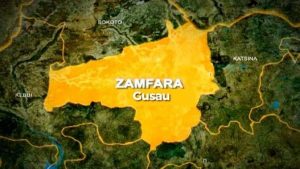Nigerian Parliament Debates N27.5 Billion Budget for 2024: Focus on Security and Economic Growth

The Nigerian House of Representatives initiated discussions on Thursday regarding the bill seeking approval for the release of N27.5 billion from the consolidated revenue fund of the federation.
The budget, presented by President Bola Tinubu at a joint sitting of the National Assembly, has been named the ‘Budget of Renewed Hope.’
Leading the debate for the bill’s second reading, Julius Ihonvbere, the majority leader in parliament, highlighted its focus on addressing insecurity, fostering economic growth, and creating a conducive environment for education.
During the debate, Ahmed Jaha, a member of the All Progressives Congress (APC) from Borno, emphasized the importance of effective oversight by House committees on Ministries, Departments, and Agencies (MDAs).
He stressed that timely fund releases would facilitate the full implementation of the 2024 budget.
Usman Kumo from Gombe echoed the significance of the president’s emphasis on security, while Sada Solid of Katsina acknowledged the president’s commitment to blocking financial leakages.
Bello Elrufa from Kaduna advocated for the implementation of the Steve Oronsanye report to reduce Westernization in government.
The debate is scheduled to continue during the next plenary session on December 5.
President Tinubu, in his budget presentation on Wednesday, outlined the key areas of focus, including economic growth, human capital development, poverty reduction, and addressing insecurity.
The proposed budget allocates N9.92 trillion to recurrent expenditure, N8.7 trillion to capital expenditure, and N8.25 trillion to debt servicing.
The total aggregate expenditure for the federal government in 2024 is projected at N27.5 trillion.
Tinubu emphasized the commitment to meeting debt obligations, with projected debt service accounting for 45% of the expected total revenue.
The budget deficit for 2024 is estimated at N9.18 trillion, representing 3.88% of GDP, a decrease from the N13.78 trillion deficit recorded in 2023.
Tinubu’s budget aims to address challenges in the education sector by establishing sustainable funding models for tertiary education and implementing the Student Loan Scheme, set to become operational in January 2024.
Source: Peoples Gazette





